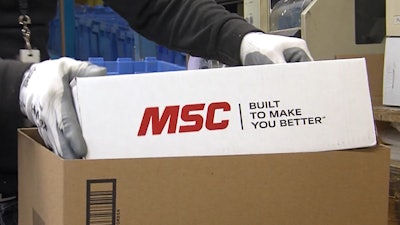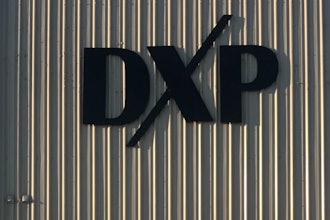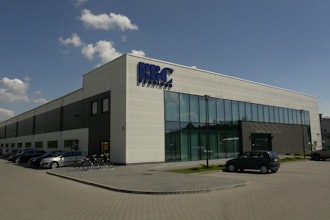
Typically the first publicly-traded industrial distributor to report its quarterly earnings, MSC Industrial Supply's fiscal results tend to serve as a barometer for the health of the MRO and metalworking products sector within industrial distribution. And by that measure, those verticals appear to be nearly recovered to their pre-pandemic levels.
For the 13 weeks ended Feb. 27 (MSC's 2021 second quarter), the company reported total sales of $774 million, down 1.5 percent year-over-year (YoY) and up narrowly from $772 million in Q1 when they were down 6.3 percent YoY. Q1 average daily sales likewise were down 1.5 percent YoY.
MSC noted solid improvement in sales of its non-safety and janitorial product lines, which turned positive in March, while safety and janitorial sales improved 15 percent YoY in Q2. Sales for the rest of the business were down YoY, but improved sequentially each month.
On the profit side, MSC had Q2 operating profit of $28 million, far below the $78 million it had a year earlier and $54 million in Q1, but Q2 included a $30 million PPE write-down that Q1 didn't have, as well as almost $22 million in restructuring costs. That write-down also significantly impacted gross margin, which fell 400 basis points YoY to 38.1 percent in Q2. Excluding the PPE write-down, Q2 adjusted gross margin was 42 percent, essentially flat YoY and sequentially. Excluding the write-down and restructuring costs, MSC's adjusted Q2 operating profit of $80.5 million was actually a slight YoY improvement. MSC's Q2 net profit was $18 million, compared to $55.5 million a year earlier and $38.5 million in Q1.
WATCH - 5 With ID: MSC Industrial Supply on Taking Customer Support Virtual (published March 25)
MSC said its ongoing Mission Critical cost savings program netted $9 million in Q2 savings, following $8 million saved in Q1 and $20 million during fiscal 2020. The company is expecting full-year 2021 gross cost savings of more than $25 million and $90 million to $100 million by the end of fiscal 2023 against a 2019 baseline.
"We are ahead of plan on savings, and our investment program is also progressing very well. In fact, the results are such that we anticipate making some additional growth investments to capture more of the opportunities that we are seeing," said Kristen Actis-Grande, MSC's chief financial officer.
Turning to March, the company reported preliminary sales of $325 million, down 1.4 percent YoY and on an average daily sales basis.
“The improving environment and continued execution of our growth and cost take-out programs are combining to position us well," said Erik Gershwind, MSC chief executive officer. "We are now emerging as a stronger company and are poised to reaccelerate growth. We have strengthened our value proposition, with more to come, and further strengthened and extended our leadership position in our core business of Metalworking. We are well on-track to achieve our goals of growing 400 basis points above the Industrial Production Index and returning ROIC back to the high teens by the end of fiscal 2023.”
Other notable statistics from MSC's Q2 (December 2020-February 2021):
- Geographically, MSC's year-over-year sales by region improved 0.9 percent in the Midwest (-4.1 in Q1); fell 3.0 percent in the Northeast (-7.0 percent in Q1); fell 5.8 percent in the Southeast (-10.4 percent in Q1); fell 6.1 percent in the West (-10.5 percent in Q1); and surged 34.4 percent in International & Other (+27,8. percent in Q1).
- By customer type, average daily sales to manufacturing customers fell 4.9 percent year-over-year, while daily sales to non-manufacturing customers grew 6.6 percent. During Q1, those figures fell 13.5 percent and gained 10.8 percent, respectively.
- Excluding subsidiaries All Integrated Systems (AIS) and MSC Mexico, 59.2 percent of MSC's Q2 sales came via e-commerce, down from 60.7 percent in Q1
- MSC ended Q2 with a total associate headcount of 6,267, down slightly from 6,304 at the end of Q1
- MSC's ended Q1 with a net debt of $664 million, $437, up 4.9 percent year-over-year






















